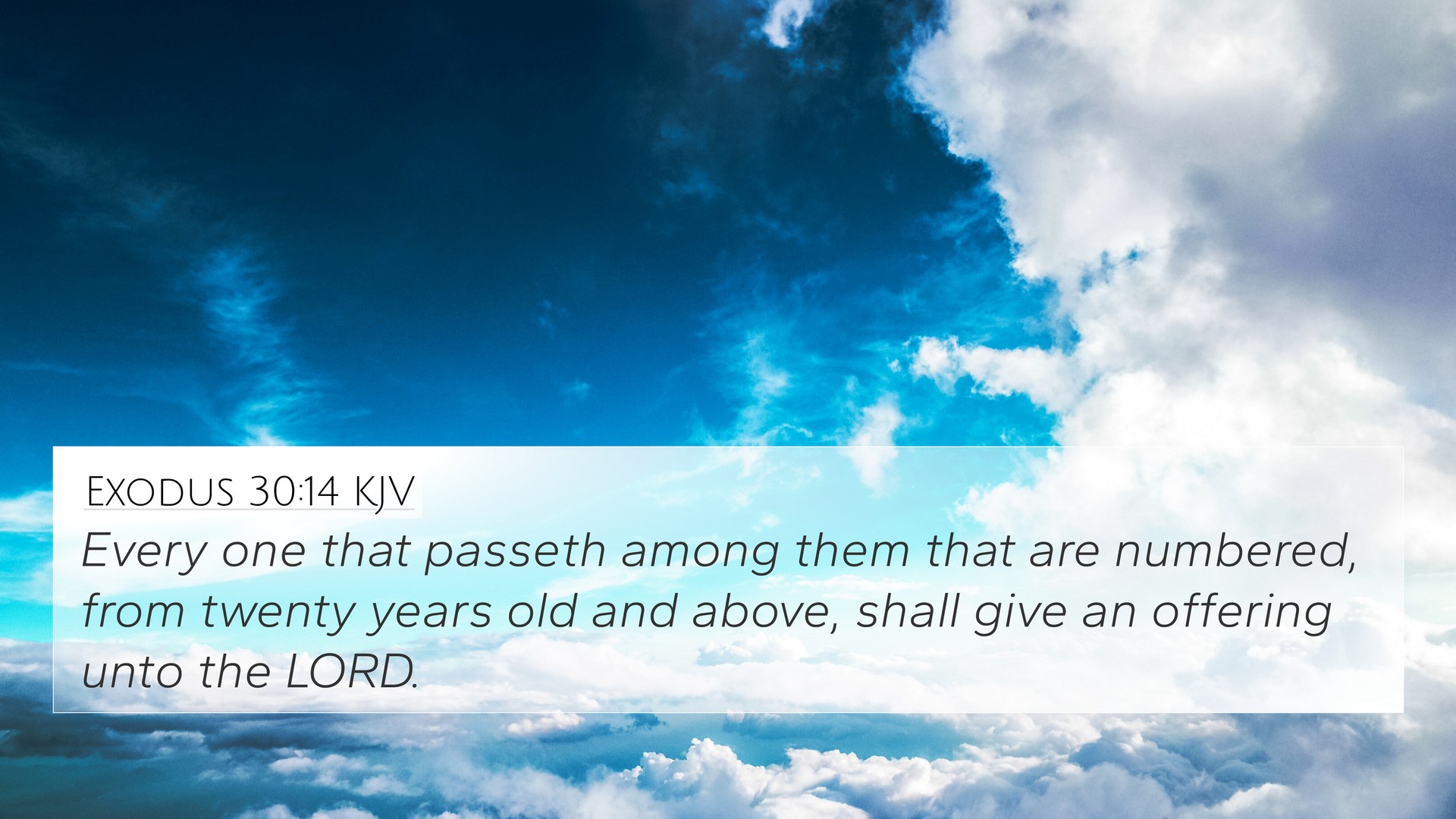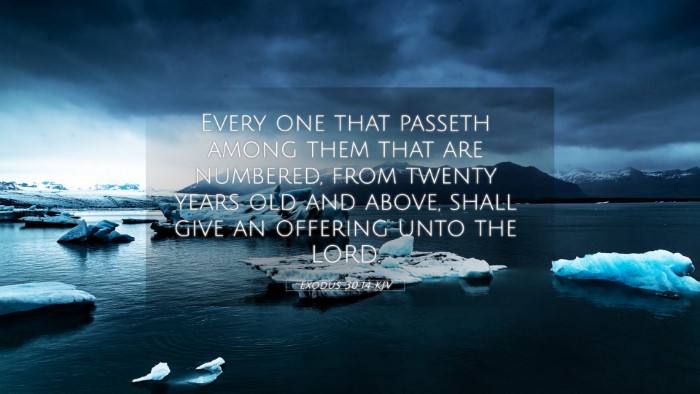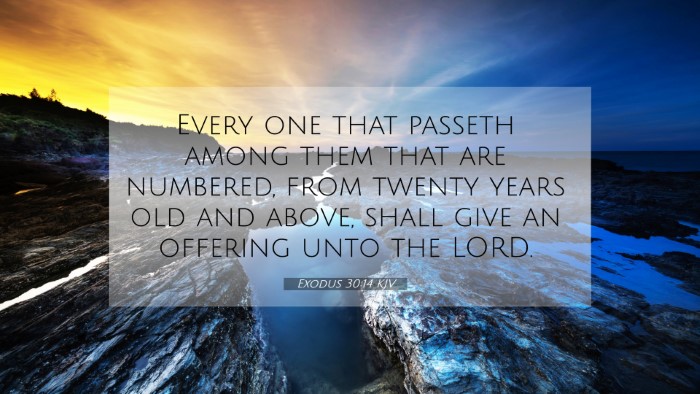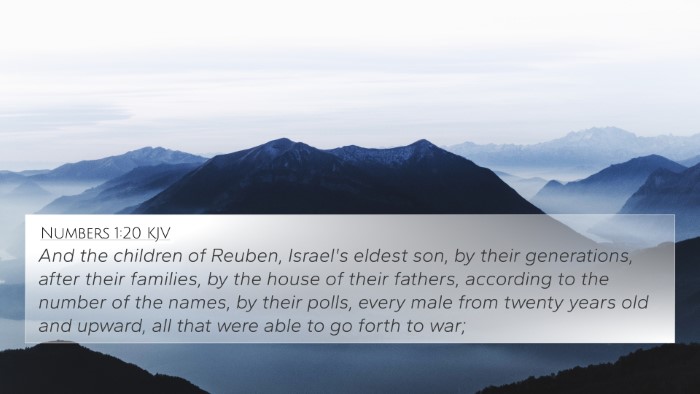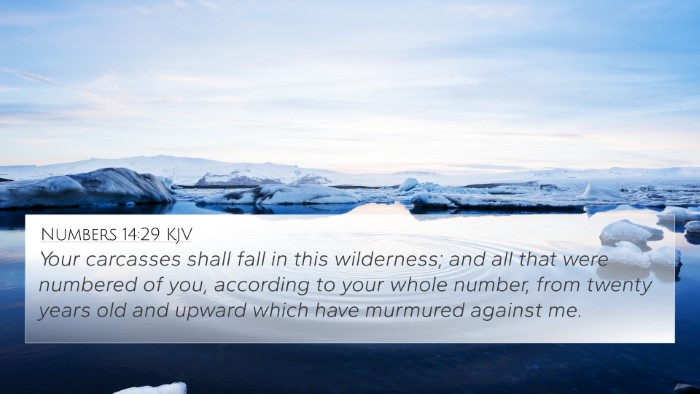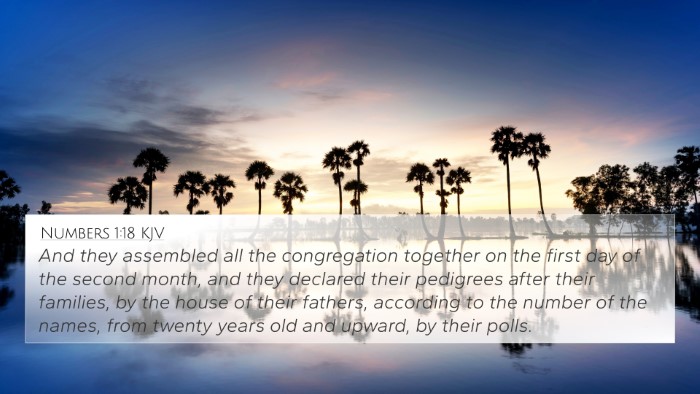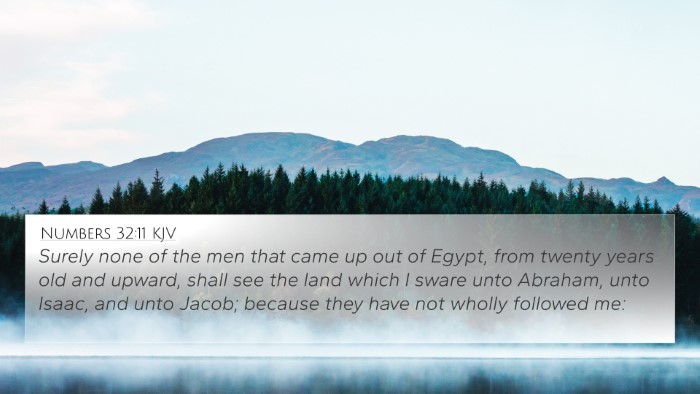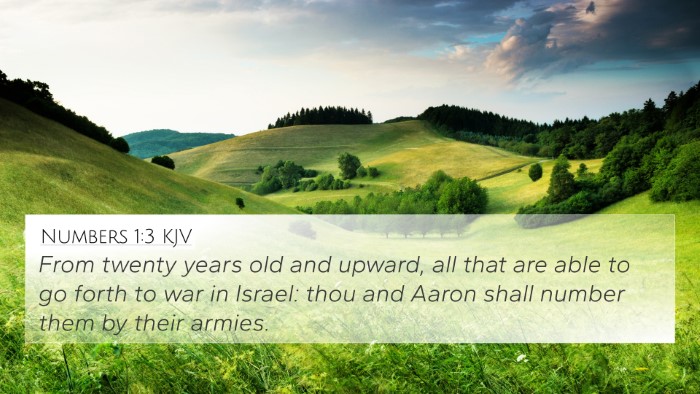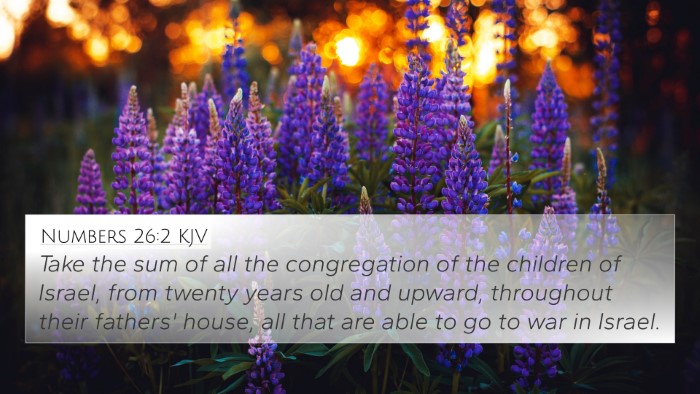Meaning and Interpretation of Exodus 30:14
Exodus 30:14 states: "Everyone who is numbered from twenty years old and upward shall give the offering to the Lord." This verse is part of the instructions given to Moses for the Israelites regarding their participation in the census and the corresponding offerings to the Lord. This text is central to understanding the God’s requirements for His people in maintaining holiness and responsibility.
Exegesis and Contextual Overview
The context of Exodus 30 is essential for interpretation. This verse appears in the section that outlines the collection of a census offering, where the Israelites, upon being counted, were required to give a ransom for their lives to appease God’s wrath. This establishes a clear boundary between the sacred and the secular, emphasizing holiness in the economy of God’s covenant.
Commentary Insights
-
Matthew Henry:
Henry notes that this offering was not only a token of their gratitude but also an acknowledgment of God’s providence and mercy. The census was a reminder of God’s faithfulness in guiding them and granting them the land and freedom.
-
Albert Barnes:
Barnes elaborates on how the command was significant as it reinforced the community’s accountability to God. The age specification (twenty years and upward) indicates a threshold of responsibility among the Israelites, acknowledging those who were mature enough to understand the covenantal obligations.
-
Adam Clarke:
Clarke focuses on the profound theological implications of the offering. He suggests that it serves as an early form of atonement where each individual is reminded of their life’s worth under God’s grace, contributing to the collective spiritual well-being of the nation.
Biblical Cross-References
To fully grasp Exodus 30:14, it is insightful to examine its related texts for thematic connections:
- Exodus 30:13: Establishes the specific amount of the ransom, reflecting further on the individual responsibility of each person.
- Numbers 1:2-3: The instructions for taking a census, emphasizing the organization of the people of Israel.
- Exodus 38:25-26: Discusses the collection of the atonement money, linking it to the broader sacrificial system.
- Ezekiel 45:16-20: References future contributions to the Lord, establishing continuity in giving as a form of worship.
- Romans 12:1: A New Testament reflection on offering oneself to God, paralleling the essence of sacrificial giving.
- 1 Corinthians 9:13-14: The principle of supporting those in ministry aligns with the understanding of giving one's offerings.
- Hebrews 9:22: Affirms the need for atonement through blood, tying the Old Testament offerings to New Testament understandings of sacrifice.
Thematic Connections and Reflections
This verse touches upon several crucial themes in the Bible:
- Holiness: A recurring theme throughout Scripture where God calls His people to lives marked by purity and dedication.
- Responsibility: The requirement of giving indicates an expectation for individual contribution to the community’s spiritual and material needs.
- Atonement: The passage symbolizes the need for atoning for sins, linking to the concept of redemption in both the Old and New Testaments.
Cross-Referencing Tools and Methods
For those studying the Bible, utilizing various tools for Bible cross-referencing can enhance understanding:
- Bible concordances help locate themes and subjects from different parts of Scripture.
- Bible cross-reference guides: Assist in tracing themes and ideas across various books which fosters deep theological understanding.
- Thematic Bible verse connections can be beneficial for sermon preparation, allowing for a comprehensive view of interconnected biblical truths.
Conclusion
Through studying Exodus 30:14, believers grasp the importance of community worship, sacrificial giving, and the significant role each person plays in God’s plan. The verse not only emphasizes individual responsibility but also reflects the larger narrative of redemption and holiness present throughout the entirety of Scripture. By cross-referencing related Bible verses, one can gain a holistic view of these overarching themes and how they converge in the text.
Overall, understanding this verse equips believers with tools to connect Scripture meaningfully, recognizing the valuable insights embedded within the narrative of God's covenant with His people.
